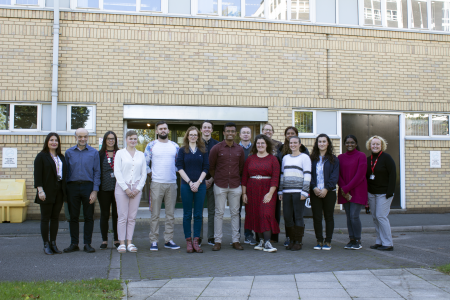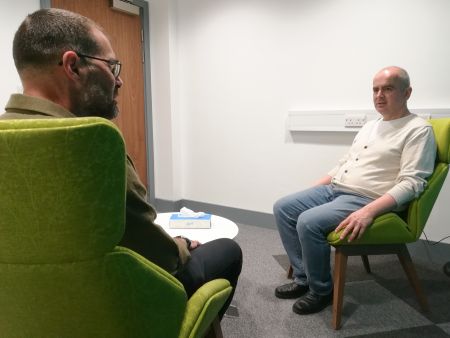Salford Research Aims to Help Develop Successful Gypsy Traveller Sites in Scotland

Salford Research Aims to Help Develop Successful Gypsy Traveller Sites in Scotland
Monday 19 January 2015
Research conducted by the University of Salford published today (Monday 19 January) suggests that proper management, choice of location and communication are vital to ensuring the successful integration of Gypsy Traveller sites in Scotland.
Key findings from the study, which is published in the Equality & Human Rights Commission’s (EHRC) new ‘Guide to Establishing Gypsy Traveller sites’, reveal that the needs of the Gypsy Traveller community can be balanced with concerns from the settled community if councils plan strategically, ensure strong communication between all parties concerned and properly manage Traveller sites.
The research, led by Professor Phillip Brown, University of Salford’s Professor of Social Change, was commissioned in direct response to claims from some Scottish local authorities that public and media pressure often prevented them from building new permanent or transit sites.
Professor Brown, who used examples including Falkirk Council’s approach to private sites and South Ayrshire’s refurbishment of their existing sites to support his research, said: “The location of the site appears paramount. Our research suggests that, whilst there may be concerns at the start of process from local residents living nearby, proper management of the site rarely leads to ongoing concerns.
“As with most new developments, communication between the council, local residents and the Gypsy Traveller community is also key, as is support for local councillors who are often the final decision makers. Taking a strategic rather than ad hoc approach is also recommended, as the more transparent the council is the more likely they will have public support.”
Alex Neil, the Scottish Government’s Cabinet Secretary for Social Justice, Communities and Pensioners’ Rights, commented on Professor Brown’s latest research.
He said: “Decisions about the provision of Gypsy Traveller sites are best made at the local level, by those with local knowledge and accountability. This research provides useful examples of good practice for those involved in making those decisions, including the importance of communication and dialogue when establishing a new site, and selecting the right location.
“The Scottish Government has already strengthened local strategic planning for accommodation in relation to the needs of Gypsy Travellers, by publishing revised guidance for housing need and demand assessments and local housing strategies. This is to help make sure that the accommodation needs of Gypsy Travellers are fully taken into account by local authorities as they plan accommodation provision in their area.”
Alastair Pringle, Director of the EHRC Scotland said: “Over the last year we have seen once again tension in some parts of Scotland concerning the development of temporary or permanent sites for Gypsy Travellers, either in private or public ownership. This ongoing lack of provision is forcing many Gypsy Travellers into ‘pulling in’ at the roadside, often in high profile areas and then risking eviction and local hostility.
“We look forward to the publication of the Governments’ Gypsy Traveller strategy later this year as what is needed is a coordinated and coherent approach to the development of sites across Scotland rather than the current ad hoc arrangements where local authorities make decisions in isolation.
“We hope that this report will provide some inspiration to those charged with locating and providing sites. Without proper provision the community is likely to continue to face hostility and councils are likely to waste more money on avoidable evictions.”
Research by the Scottish Government confirmed recently that in 2014 there were 59 Gypsy Traveller sites in 18 areas in Scotland – a change from the 53 sites in 23 local authority areas reported in 2009. Altogether there were 763 pitches available in public or private ownership.
To read the research report click here.









